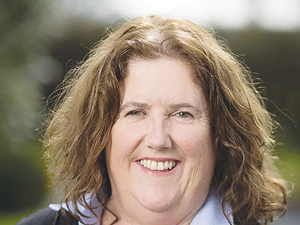DairyNZ opens applications for associate director role
DairyNZ is giving New Zealand farmers a unique opportunity to gain hands-on governance and leadership experience within the dairy sector.
 DairyNZ’s farm performance manager, Sarah Speight says while pasture covers look great, farmers face a myriad of challenges.
DairyNZ’s farm performance manager, Sarah Speight says while pasture covers look great, farmers face a myriad of challenges.
It looks good physically on farm but below the surface things are far from ideal.
That's the view of DairyNZ's farm performance manager, Sarah Speight, who says in general if one looks at pasture covers, cow condition and milk production, things aren't too bad.
She says this is amazing given the season has been all over the place with adverse weather events which have made it hard for farmers to manage their operations.
Sarah Speight says most of the maize silage has now been harvested, although yields are below last year's levels.
"But it's not as bad as originally thought," she told Dairy News.
"There have been problems with pests and the weather has delayed the planting of maize. In one case, a farmer told me he had to plant his crop three times because the weather wiped out the first two plantings," she says.
Speight says in the upper North Island the cyclones which brought heavy rainfall had a bizarre positive effect by enhancing grass growth, meaning some extra grass silage could be harvested.
She says there will be challenges in Otago, which has been hit by a drought and there may be a shortage of grass for the cows, but the South Island is pretty big and there are options to bring in feed and take other steps to mitigate the problems.
In Northland, Hawke's Bay and the East Coast of the North Island, infrastructure remains a problem with some farms still without road access. She says the bridge at Patoka in Hawke's Bay has been replaced, enabling stock access and milk collection, but other places are still cut off.
"Farmers in Northland are getting back on track with regrassing taking place and autumn calving progressing well.
"It's much the same on the West Coast of the South Island where things are looking up in terms of the farm, but it's financial issues and concern about rising costs that are causing the angst," she says.
The World Wide Sires National All Day Breeds Best Youth Camp Best All Rounder plaudit has become family affair, with 2026 Paramount Cup winner Holly Williams following in her sister Zara's footsteps.
DairyNZ is giving New Zealand farmers a unique opportunity to gain hands-on governance and leadership experience within the dairy sector.
Herd improvement company LIC has posted a 5.2% lift in half-year revenue, thanks to increasing demand for genetics.
According to the latest Fresh Produce Trend Report from United Fresh, 2026 will be a year where fruit and vegetables are shaped by cost pressures, rapid digital adoption, and a renewed focus on wellbeing at home.
The Roar is a highlight of the game hunting calendar in New Zealand, with thousands of hunters set to head for the hills to hunt male stags during March and April.
OPINION: The past few weeks have been tough on farms across the North Island: floods and storms have caused damage and disruption to families and businesses.
OPINION: Fonterra may be on the verge of selling its consumer business in New Zealand, but the co-operative is not…
OPINION: What does the birth rate in China have to do with stock trading? Just ask a2 Milk Company.